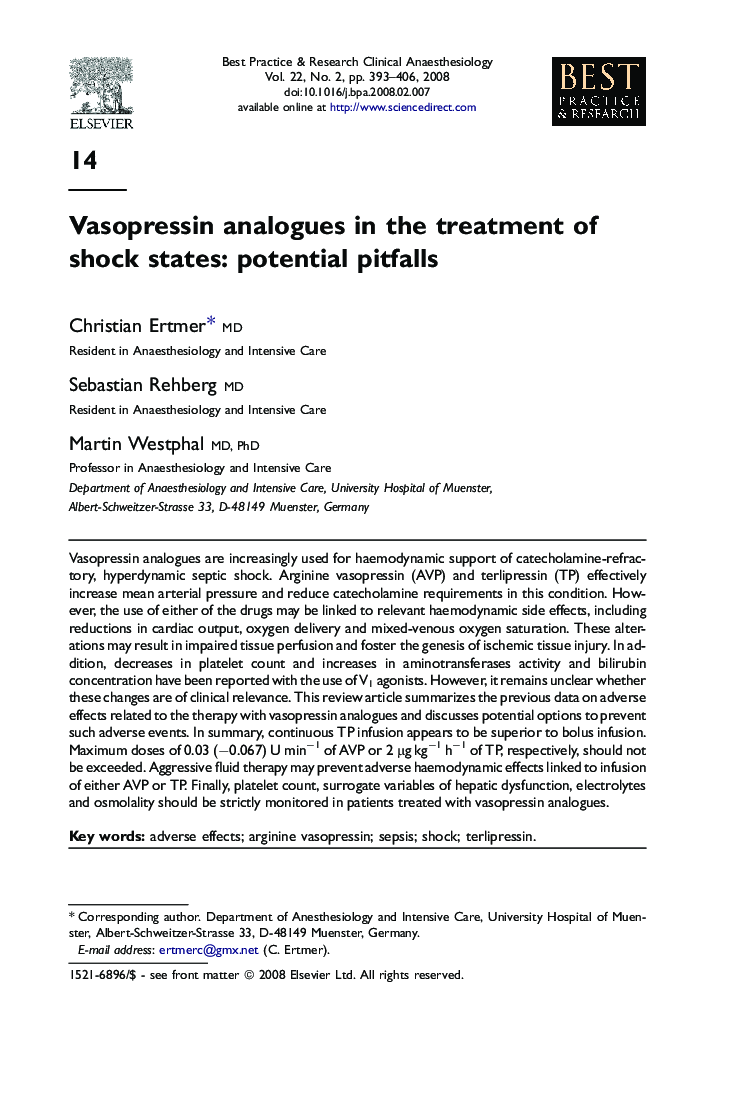| کد مقاله | کد نشریه | سال انتشار | مقاله انگلیسی | نسخه تمام متن |
|---|---|---|---|---|
| 2748619 | 1149202 | 2008 | 14 صفحه PDF | دانلود رایگان |

Vasopressin analogues are increasingly used for haemodynamic support of catecholamine-refractory, hyperdynamic septic shock. Arginine vasopressin (AVP) and terlipressin (TP) effectively increase mean arterial pressure and reduce catecholamine requirements in this condition. However, the use of either of the drugs may be linked to relevant haemodynamic side effects, including reductions in cardiac output, oxygen delivery and mixed-venous oxygen saturation. These alterations may result in impaired tissue perfusion and foster the genesis of ischemic tissue injury. In addition, decreases in platelet count and increases in aminotransferases activity and bilirubin concentration have been reported with the use of V1 agonists. However, it remains unclear whether these changes are of clinical relevance. This review article summarizes the previous data on adverse effects related to the therapy with vasopressin analogues and discusses potential options to prevent such adverse events. In summary, continuous TP infusion appears to be superior to bolus infusion. Maximum doses of 0.03 (−0.067) U min−1 of AVP or 2 μg kg−1 h−1 of TP, respectively, should not be exceeded. Aggressive fluid therapy may prevent adverse haemodynamic effects linked to infusion of either AVP or TP. Finally, platelet count, surrogate variables of hepatic dysfunction, electrolytes and osmolality should be strictly monitored in patients treated with vasopressin analogues.
Journal: Best Practice & Research Clinical Anaesthesiology - Volume 22, Issue 2, June 2008, Pages 393–406